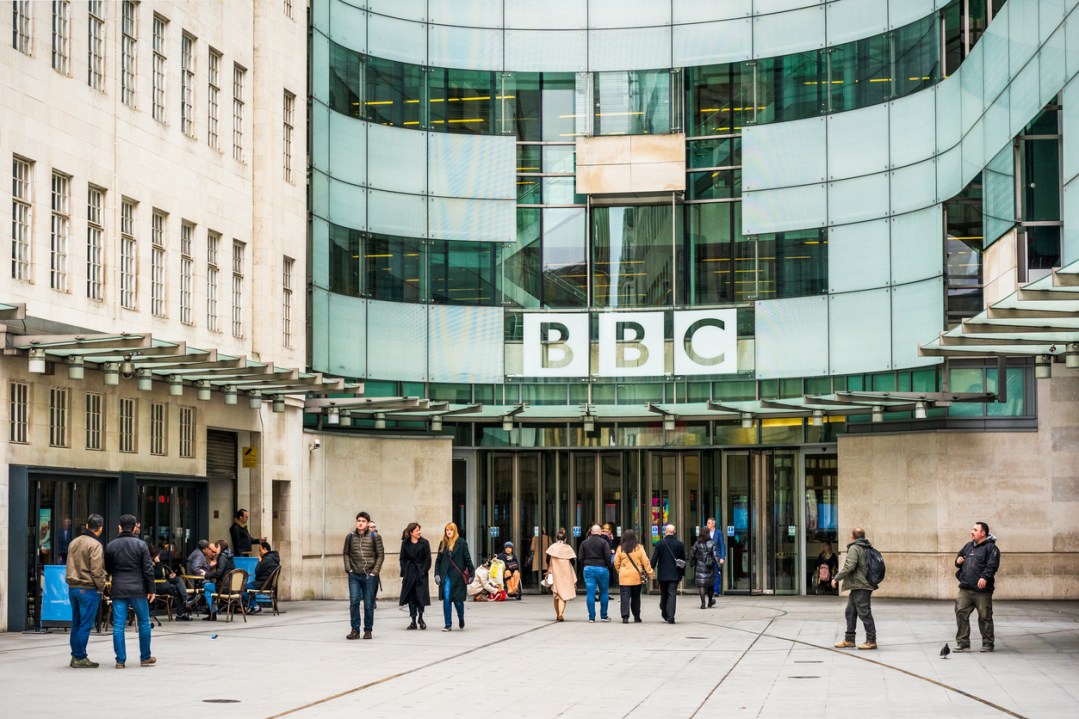The high-profile political activist Gary Lineker will not present Match of the Day tonight after he likened the rhetoric of the government to 1930s Germany. Several pundits and commentators are boycotting the show, while the BBC has also been forced to pull from air Football Focus, Final Score and Fighting Talk.
Many people are professing themselves baffled that this story about a football presenter and Twitter should dominate the news agenda for several days. But the real story here is about what is often referred to as the culture war and who is winning it.
We are finding out who’s really in charge of the BBC. Is it we, the people who pay the licence fee on threat of imprisonment, and who are told the service is impartial when it is not? Or is it the so-called talent, near uniformly liberal in outlook and typically incredibly rich, who now threaten to strike in support of the former England centre forward?
Perhaps we should see what is happening to Lineker as part of an encouraging wider trend. Over the last 18 months, we’ve seen a kind of Augean Beeb stable cleansing as a succession of high profile presenters increasingly unable to disguise unfailingly liberal sensibilities have departed. Lineker’s name now appears likely to be joining those of figures such as Emily Maitlis, Jon Sopel, Lewis Goodall, Nish Kumar and Andrew Marr.
This is a good thing. No one is claiming these people should not be allowed to say what they think about anything, not least on political matters. That is their inalienable right in a free society. Instead, what is being demonstrated is that – much like royalty (which is almost what they are) – high profile BBC presenters can no longer demonstrate impartiality and at the same time take lavish state-funded coin. Long may that last.
‘But what about freeeeeeeeee speeeeeeech?!’ hiss legions of Lineker’s dim-witted supporters. Would they make the same objection were Beeb Director General Tim Davie now to appoint, say, political activist Nigel Farage as Lineker’s replacement? Of course not. But their fury is easily understood. For years, it will have been hugely comforting to them to see their own increasingly unpopular worldview mirrored by the BBC’s most famous, and most highly valued, talking head – just as it would have been to see Emily Maitlis presenting flagship current affairs show Newsnight.
I’m not suggesting Farage should really be the next presenter of Match of the Day, but certainly it’s a job that lots of people could do. All that’s required is the ability to look into a camera and to inform whoever is watching that this particular Saturday some football has been played across the nation, and that there will now follow a succession of clips for the purpose of illustration. The presenter must then put a few softball questions to Alan Shearer and Ian Wright — both of whom have said they will not appear on the show in solidarity with Lineker — and collect a cheque worth north of £1.3 million for the year. War reporting, it ain’t. Wright and Shearer can be easily and cheaply replaced too. The reality is tonight we will see the programme doesn’t require presenters at all. It literally presents itself.
The only skill required to be presenter of Match of the Day, as far as I can tell – and on reflection I now see this also disqualifies Farage – is the ability not to be irritating. In this respect, political neutrality is very obviously the correct approach. As anyone who has ever been to a dinner party or worked in an office will attest: nothing gets up the nose more effectively, or makes the heart sink more rapidly, than unbidden having to hear other people’s political opinions.
Lineker’s defenders say their man didn’t try to score political points, much less call anyone a Nazi, from the actual Match of the Day presenter’s chair, and he should be allowed to opine on whatever he pleases elsewhere. But it’s a fatuous argument.
Lineker doesn’t just present Match of the Day, he is Match of the Day. In fact, he’s the face of all BBC sport. Clearly that is why he gets the massive salary. That he does most of his often deliberately provocative proselytising for liberal causes not on the BBC, but instead on Twitter is neither here nor there. The size of his Twitter platform is directly attributable to the size of his BBC platform. One is the extension of the other. Besides, bleating about the wickedness of the Tories to his 8.8 million Twitter followers can hardly be said to be the same as sharing his convictions with friends behind closed doors. It would be the same if he used a newspaper column to enlighten us on his increasingly extreme political beliefs.
It’s not difficult, either, to understand the imperative for BBC impartiality. Of course, there’s the fundamental requirement for fairness, which only impartiality can hope to deliver. But there’s also the pressing need to avoid unnecessarily antagonising half of the people, or more than half, who pay for the thing. The BBC is ours. It belongs to us. Obviously it should not become a soapbox from which presenters can press onto the public their specific biases, whether they work in news or not.
To think that it should is not only short-sighted, but arrogant. The deal for presenters has always been the same: take the money, do the job and keep schtum about your opinions, no matter how blindingly brilliant you consider them to be, or how infuriatingly thick you think much of your audience is. My bet is that an enormous number of people will tune in to MOTD tonight, perhaps more than usual.








Comments